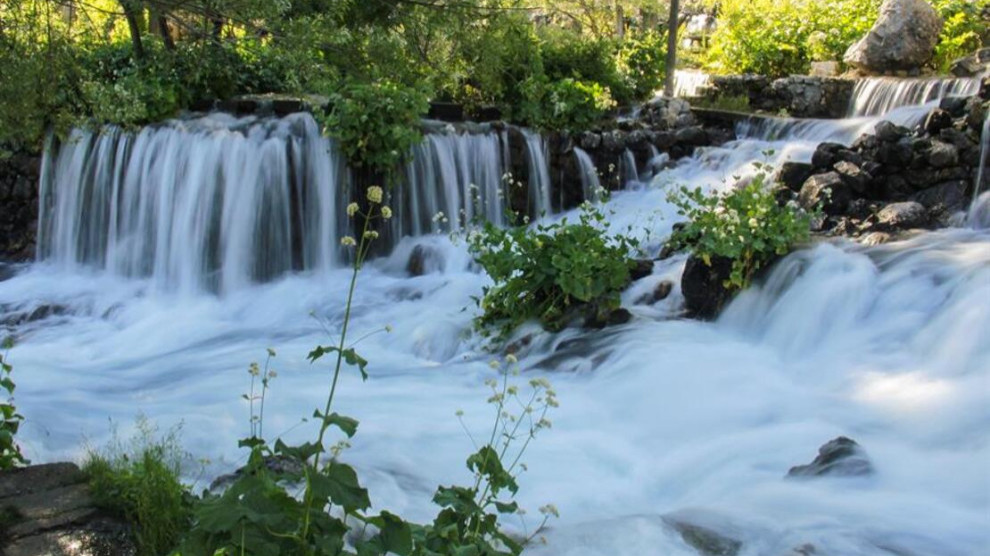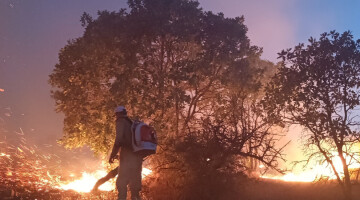For years Turkey has been characterised by ecological destruction and exploitation of nature. Especially since Recep Tayyip Erdoğan and his AKP, the madness of construction projects, especially dams, has gained momentum. While the population has still not awakened from the shock of the massacre of human history in Hasankeyf, where twelve thousand years of cultural history have been lost for the Ilisu hydroelectric power plant, which is designed to operate for 50 years, and the Zilan valley in Van is also intended to disappear under dams, the Turkish government in Dersim is planning to close the Munzur Springs and redesign them for profit. Alevi society is outraged - and has vowed collective resistance.
For the Alevi population of Dersim the river and mountain landscape of the Munzur is a symbol for their region, which they consider a unique miracle. Besides the supply of water, fishing and other economic aspects, the Munzur has a "sacred" status in the eyes of the people. Its historical, cultural and scenic significance has been immense for centuries. The Munzur is directly associated with almost all mythologies, legends and traditions in Dersim. It was named after shepherd Munzur Baba, who, according to a legend, spilled buttermilk in horror at the present spring region near Ovacık, which gave rise to the 40 springs of Munzur. They mainly concern an area which has been protected by the Turkish state as a national park and where such interventions are actually illegal. The source region is also protected by international conventions ratified by Turkey.
Resistance wanted to be nipped in the bud
In order to nip the potential opposition to the construction project in the bud, the Turkish authorities have imposed a comprehensive ban on assembly around the Munzur Springs area and erected barriers. The barriers are being monitored by the military and police. Free access is therefore prohibited. In order to draw public attention to the imminent destruction at Munzur, the initiative “Let Munzur Flow Freely” has launched a signature campaign. The campaign is considered the first small step in the fight for the 40 springs of Munzur, which are to be preserved. "Whatever it takes."
Alevism – nature at the centre of faith
Dersim is the region with the highest proportion of persons of the Alevi faith. Alevism combines Zoroastrian as well as natural religious and ancient Oriental elements and is a belief in a natural society, according to which the relations between all living beings are based on mutual recognition, on the basis of a communal, solidary and sharing society. All peoples are equal, regardless of their ethnicity and religion. At the centre of faith, alongside humanity and the universe, is nature. There are numerous trees, rocks and rivers that are considered holy places. In almost every village there is a place of pilgrimage. The source region of Munzur is only one of them.
RELATED NEWS:














